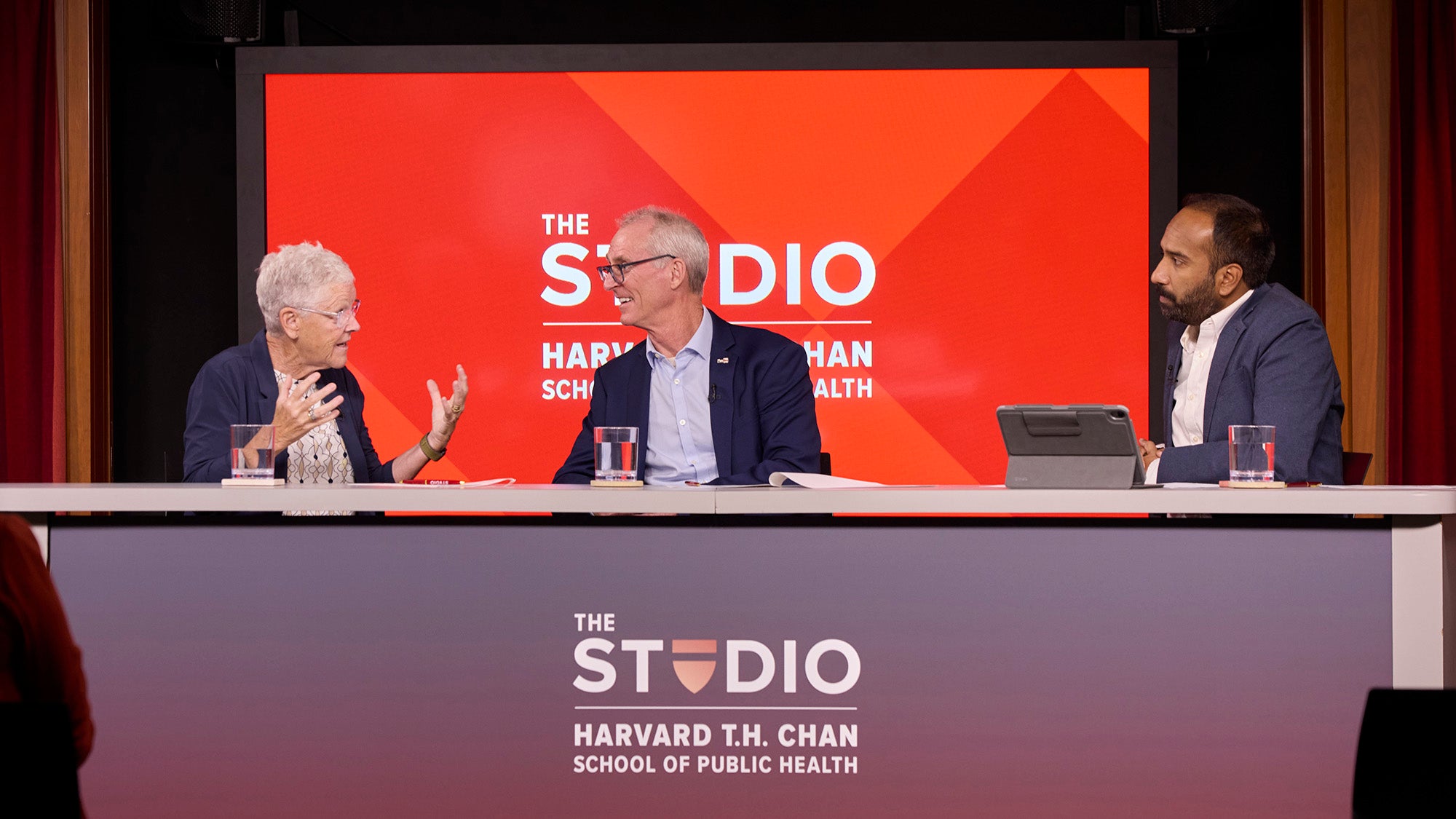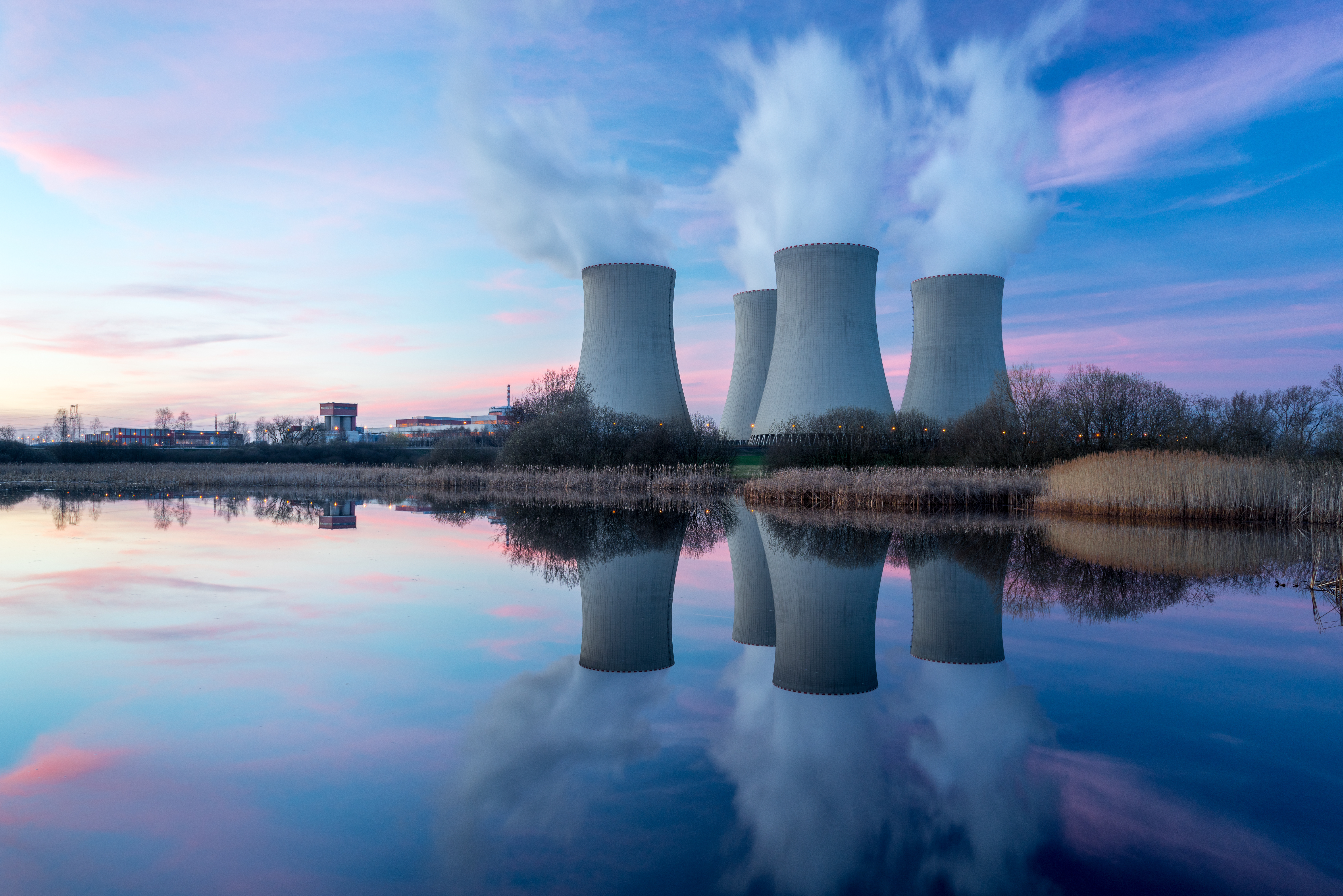Bridging the partisan divide on climate change

When it comes to climate change solutions, Gina McCarthy and Bob Inglis agree that, in spite of the Trump administration pulling back on regulations to curb the use of fossil fuels, there are things to be hopeful about.
Inglis, former Republican U.S. Congressman from South Carolina, and McCarthy, former administrator of the U.S. Environmental Protection Agency during the Obama administration, spoke at an Oct. 6 panel hosted by The Studio at Harvard T.H. Chan School of Public Health focused on finding bipartisan solutions to climate change during turbulent times. The event was moderated by Gaurab Basu, assistant professor in the Department of Environmental Health and a faculty member at the Center for Climate, Health, and the Global Environmental (Harvard Chan C-CHANGE).
Inglis said he finds hope in the fact that businesses are pursuing sustainable options even without being forced to by the federal government. For instance, he noted that Ford is stepping up production of electric cars to better compete in Europe, where EV sales are on the rise. Referring to Trump administration priorities, he said, “Eventually shaky ideologies are overcome by the facts—especially economic facts.”
McCarthy—who also previously served as C-CHANGE director—said that “this has been the most challenging time I have ever had to live through. It’s very difficult to see science being denigrated.” But she has found venues where she tries to make change, such as America Is All In, a coalition of leaders across the U.S. working to support climate action. “When the federal government isn’t working on our behalf, there are other venues to actually make progress,” she said.
Basu asked Inglis and McCarthy why they care so much about climate change. McCarthy recalled being aware from a young age “that we had huge challenges, both health and environmental. When I grew up, everything was dirty. There was pollution spewing everywhere, we had water contamination everywhere.” She became further engaged in climate issues while serving as the health agent in Canton, Mass. She later worked in various environmental roles in Massachusetts and Connecticut, eventually moving on to federal roles, including White House national climate adviser under President Joe Biden.
As for Inglis, he admitted that he didn’t always care about climate change. During his first stint in Congress from 1993-99, he thought it was “nonsense.” But in 2004, when he had the opportunity to run for the same seat again, he was pushed to think differently about the issue when his son—who was turning 18—said he’d vote for him only if he “cleaned up his act on the environment.” The rest of Inglis’s family agreed.
Later, back in Congress, Inglis took trips to Antarctica and Australia’s Great Barrier Reef, where he witnessed climate-related damage firsthand. In 2009, he introduced a bill that would’ve instituted a carbon tax while reducing Social Security taxes. Although the bill failed, Inglis said that he still thinks such a tax would make sense. “If you don’t want to regulate something, you tax it,” he said.
To engage conservative voters on the issue of climate change, Inglis suggested using messaging aimed at right-of-center voters, focused on issues such as how climate action can boost the economy and create jobs. He thinks the climate conversation has mostly been in the “language of the left”—focused on protecting the community as a whole and on fairness—which may not resonate as much with voters on the right.
McCarthy said it’s important to talk about the science of climate change, “but we have to bring it to life. We have to ground [the science] by talking about what it means for everyday people’s human needs.”


